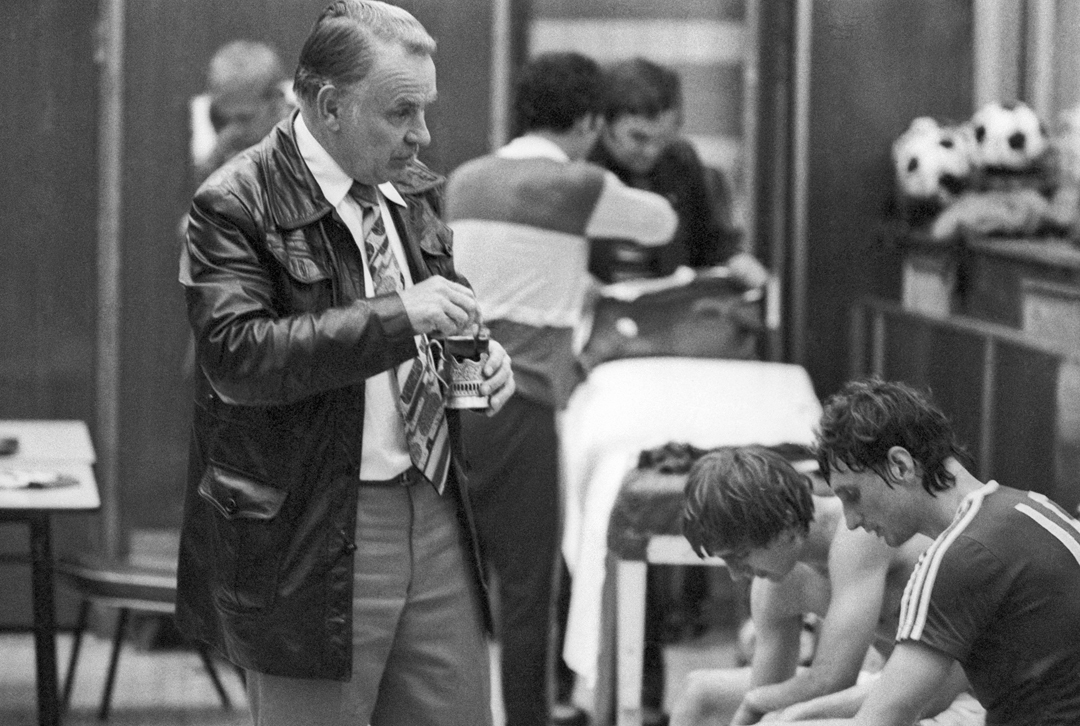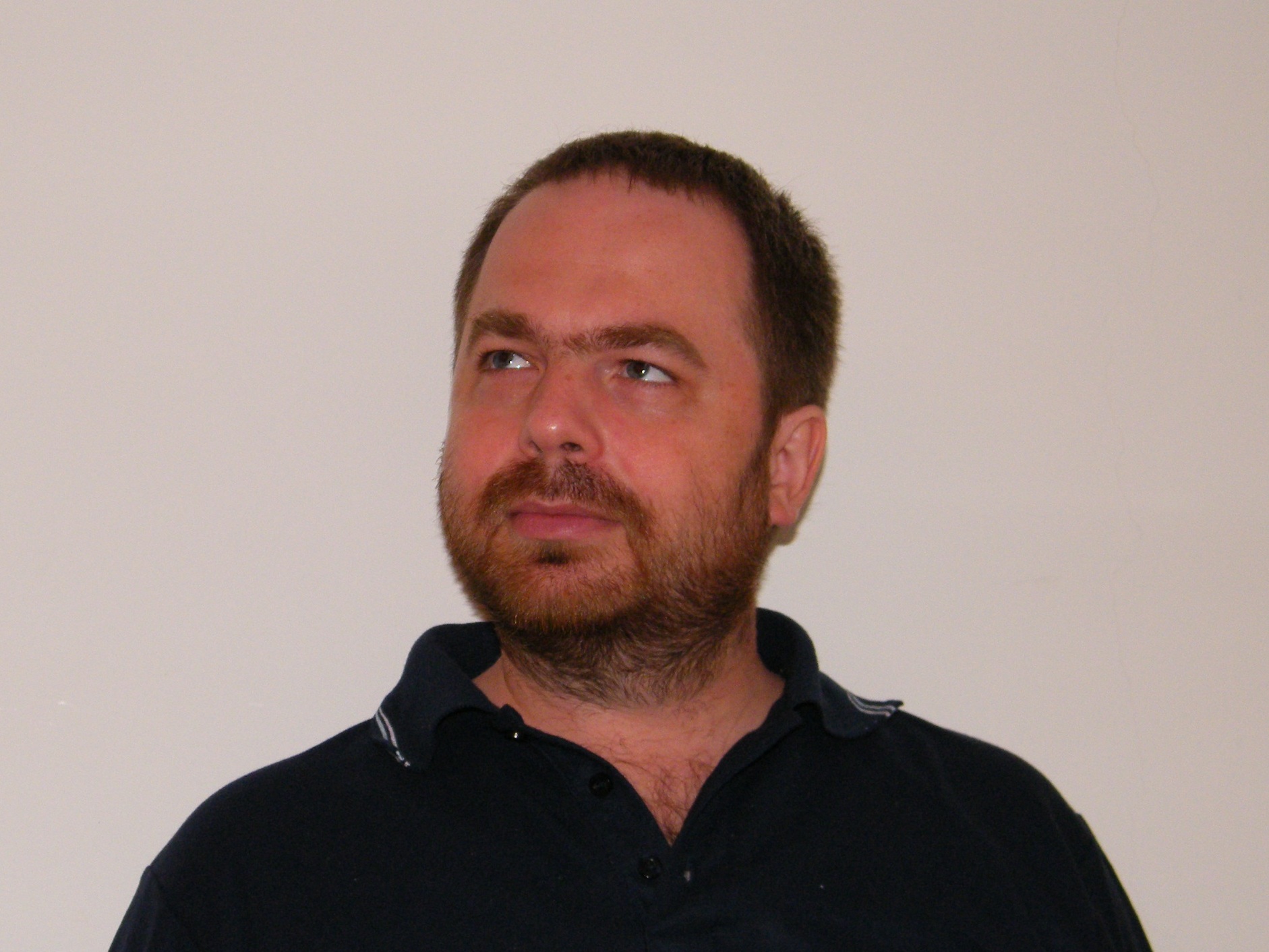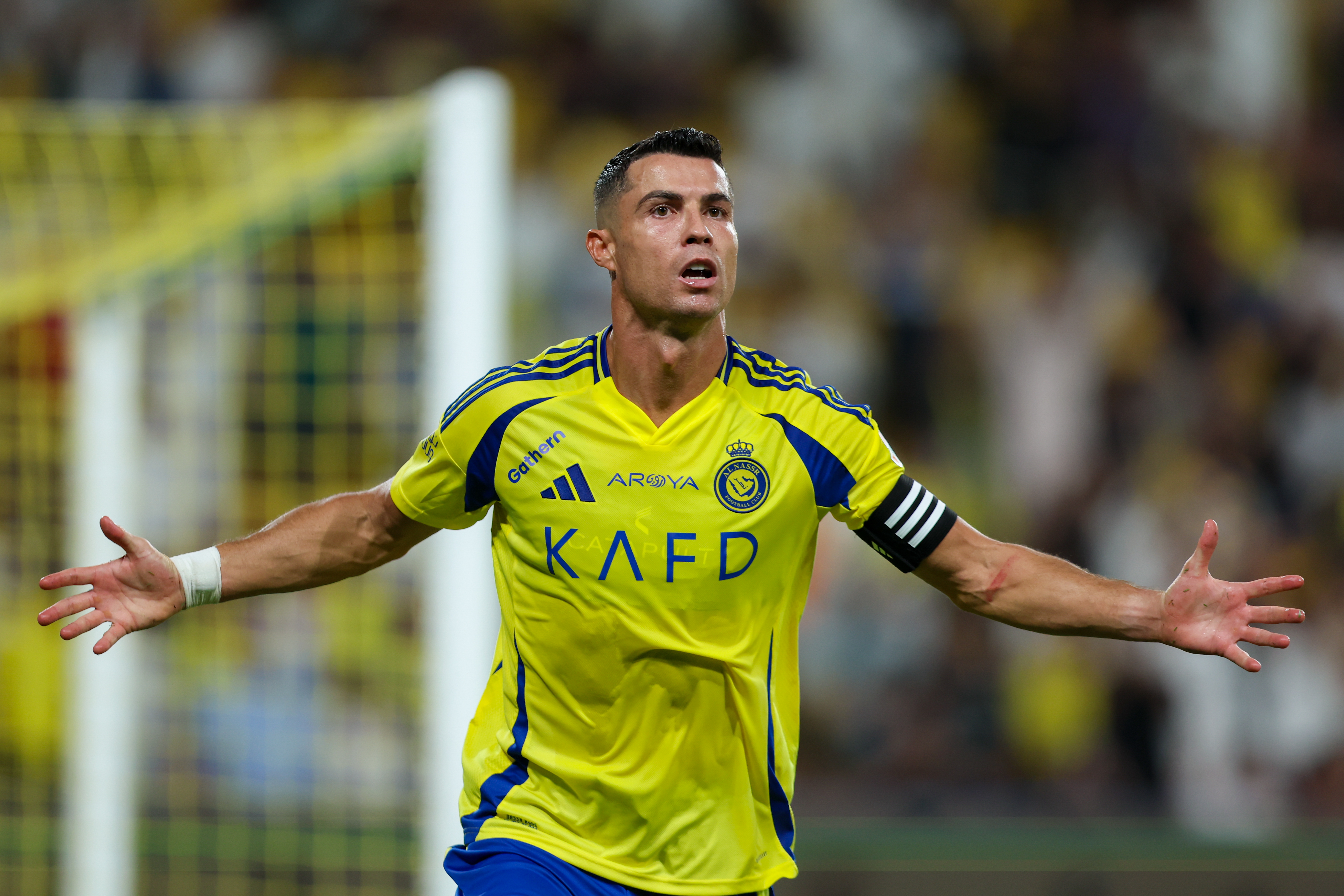Pep Idol: the Anti-Lobanovsky who inspired a generation – inside and outside Russia
Michael Yokhin examines the career and ethos of the man who influenced a generation, Konstantin Beskov...

“Every time I watch Pep Guardiola’s Barcelona, they remind me of Konstantin Beskov. He cultivated this magical style, now widely recognised as the best in the world, 30 years ago. Like a true creator, he showed the way ahead of time.”
Those words, written in 2010 by Aleksandr Weinstein, one of Russia's most respected Russian journalists, might seem a bit weird. You could well even ask – Konstantin who? After all, the only name that usually comes to mind when thinking of the Soviet football school is that of Valery Lobanovsky.
But in Russia, the debate on the identity of their greatest coach will go on forever. For many, it is Beskov who should be remembered as such. Legendary Spartak Moscow chairman Nikolai Starostin claimed: “When asked who is the best ever writer, Victor Hugo answered ‘I am’. That’s what Beskov should say if asked who is the best coach in the Soviet Union.”
The rivalry between Lobanovsky and Beskov went far beyond football. They were somewhat similar in their strict disciplinarian approach – both were called dictators, aspiring to control every aspect of life in their clubs and being extremely harsh with players who dared to disagree with them. Their approaches to the game, however, could hardly be more different. It was a clash of philosophies, in the pure sense of the word.
Whereas Lobanovsky achieved everything in his career putting emphasis on the physical side of football, Beskov always preferred technical brilliance. While Lobanovsky wanted his stars to strictly follow his tactics, Beskov allowed players to think for themselves, especially in the final third of the pitch. The Kiev-born Ukrainian favoured a fast vertical game. The Moscow-born Russian never abandoned the silky short-passing style.
In short, it was a fight between automatisation and improvisation, between speed of running and speed of thought. Neutral fans usually prefer the latter, and that made the Spartak Moscow of the 1980s one of the Soviet Union's most popular teams.
European pioneer
Get FourFourTwo Newsletter
The best features, fun and footballing quizzes, straight to your inbox every week.
True, as far as titles are concerned, Lobanovsky wins the duel hands down. He spent almost two decades at the helm of Dynamo Kiev in the Soviet era, winning eight league titles and six cups, and even more significantly winning the European Cup Winners’ Cup in 1975 and 1986.
But Beskov was the first Soviet coach to lead his team to a European final. In 1972 his Dinamo Moscow met Rangers in Barcelona on an unforgettable night for the Ibrox fans, for better or worse: the 3-2 win was their only continental trophy, but the ending was marred by numerous pitch invasions by Scottish fans who were beaten by the police.
The Muscovites felt that crowd trouble prevented them from scoring an equalising goal, and for Beskov it was the second heartbreak in the final on Spanish soil. In 1964, he had led the USSR all the way to the European Championship final, losing 2-1 to the hosts in a dramatic game at Santiago Bernabeu. Objectively, that was a massive achievement, but the Communist Party decreed that succumbing to Franco’s Spain was an unforgivable failure, and Beskov was duly sacked.
His second tenure with the national team also ended on a sour note. After the USSR lost to East Germany in the semi-finals of the 1980 Moscow Olympic Games, the party didn’t really trust Beskov. When he led the nation to the 1982 World Cup in Spain – their first competition qualification in a decade – they forced him to accommodate the differing ethnic groups within the squad by taking along two extra coaches: the Ukrainian Lobanovsky and Georgian Nodar Akhalkatsi, who had led Dinamo Tblisi to the 1981 Cup Winners' Cup. The bizarre three-headed "technical team" predictably didn’t work out, the USSR missing qualification from the second group stage on goal difference, and that was the end for Beskov.
Lobanovsky, who was eventually put in charge for Mexico 86, failed at two World Cups but reached the final of European Championships in 1988. In stark contrast to Beskov’s similar experience 24 years previously, that was considered a major success, even though Lobanovsky rarely finished second. Beskov, on the other hand, got quite used to it.
In fact, he holds a record for runners-up finishes, and that tradition started when at the helm of Dinamo Moscow, his beloved team where he spent the majority of his illustrious playing career as a striker.
From Dinamo to Spartak
Far from tall at just 172cm (5ft 8in) and slightly built, Beskov nevertheless scored roughly a goal every two games thanks to his immaculate shooting technique and tactical awareness. As a coach he cherished the same qualities in his players, and Dinamo enjoyed a very successful period under his guidance – but never won the championship title, finishing second in 1967 and 1970.
For long years, Beskov’s name was synonymous with the blue-and-whites of Dinamo, but in 1977 he was called to rescue city rivals Spartak after they were sensationally relegated. At first he tried to refuse the offer, but eventually couldn’t resist the pressure of party officials. He never regretted it.
Ever since, Beskov became the legend for the red-and-whites, and his philosophy was best executed during the 12-year spell at the side many considered to be the people’s team in Russia. He was the ultimate hero of millions, and Spartak’s attractive short-passing game helped to promote the game all over the country.
The best-known star of Beskov’s Spartak outside Russia is goalkeeper Rinat Dasaev, but he helped to develop some truly outstanding outfield performers. Clever schemer Yuri Gavrilov, ball-loving sweeper Vagiz Khidiyatullin, midfield turbo Sergei Shavlo and penalty-area predator Sergei Rodionov are less famous around the globe, mostly because they didn’t get the recognition they deserved in the national team after Beskov left it. Lobanovsky couldn’t stand most of the Spartak stars, and the biggest victim of all was most certainly Fyodor Cherenkov.
One of the world's most visionary playmakers in the 1980s, Cherenkov easily makes the list of the best players never to compete in the World Cup. He was the brain of Spartak's game – most of the attacking moves went through him – while his passing and dribbling skills were truly breathtaking. For Beskov, he was the perfect ambassador of his philosophy on the pitch, but outside Spartak he was usually disregarded as too weak physically and too slow – especially after the Olympics fiasco in 1980 was mainly attributed to him.
The force of Cherenkov-inspired Spartak could be devastating. In September 1982 in the UEFA Cup, the Russians demolished Arsenal 5-2 at Highbury to complete an 8-4 aggregate win. A year later, Aston Villa were also beaten 2-1 in Birmingham in the same competition, as Beskov clearly enjoyed better luck in Britain than in Spain. But European success never came, and Spartak were always beaten before the semi-final.
Domestically, too, Beskov didn't get the trophies his team's football deserved. His Spartak were champions in 1979 and 1987, but finished runners-up no fewer than five times, and on three such occasions it was Lobanovsky’s Dynamo Kiev who bettered them.
Thus, if you judge on results only, the winner is clear, but results rarely tell the whole story. The legacy of Hungary in 1954, Holland in 1974 and Brazil in 1982 is much more significant than that of the teams who beat them, and arguably that is also the case with the Spartak of the 1980s. The spirit of Beskov is immortal, and Spartak's most notable coach since – Oleg Romantsev, who won a record eight Russian league titles – developed his philosophy as a player in Beskov's team. Since he left, the void seemed to be impossible to fill, and the team gradually lost its identity.
The longing for the return of Beskov-style is easily felt even today, 25 years after he left the team in very controversial circumstances. His last game on Spartak’s bench was on 19 November 1988, a quarter of a century ago. That season finished with Spartak in fourth place, the team went onto winter vacation, and upon his return in mid-December Beskov found that he had been fired. The decision was taken behind his back, and he never forgot the insult.
He briefly returned to management in his mid-70s, spending a season and a half at Dynamo and leading them to the 1995 Russian Cup. The legendary coach died in May 2006, aged 85, but his philosophy lives on, and will do so for long decades to come. For many Russians, watching Xavi and Andres Iniesta reminds them of Beskov and Cherenkov, and that is the legacy left behind by the anti-Lobanovsky.
Michael Yokhin is a European football writer. In addition to FourFourTwo, he wrote for Guardian, BBC, ESPN, Blizzard, New York Times, Independent, 11Freunde, Josimar and others. He takes keen interest in leagues, teams and players that might be a bit out of the main focus in the mainstream media, and loves football history as well.

